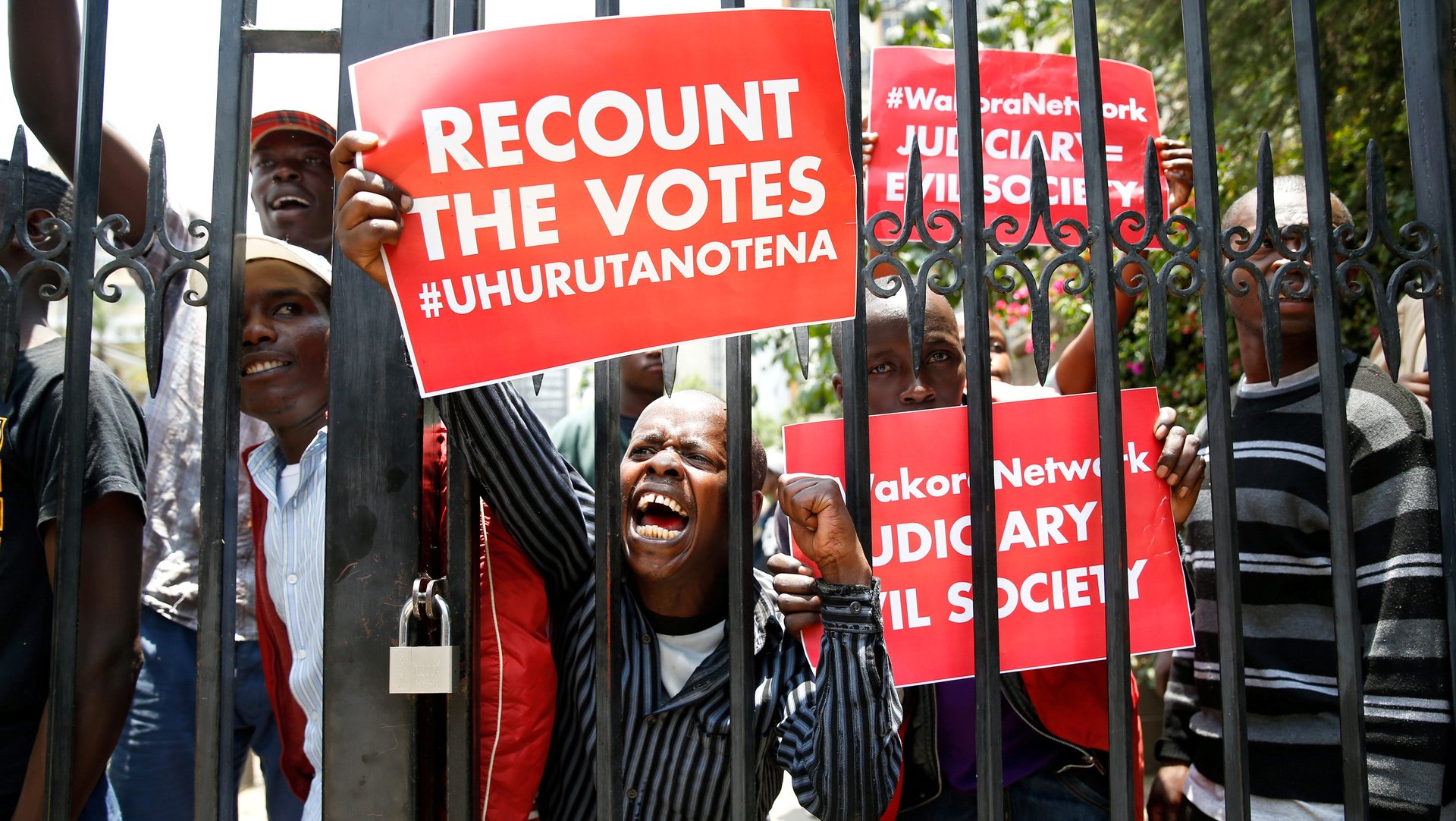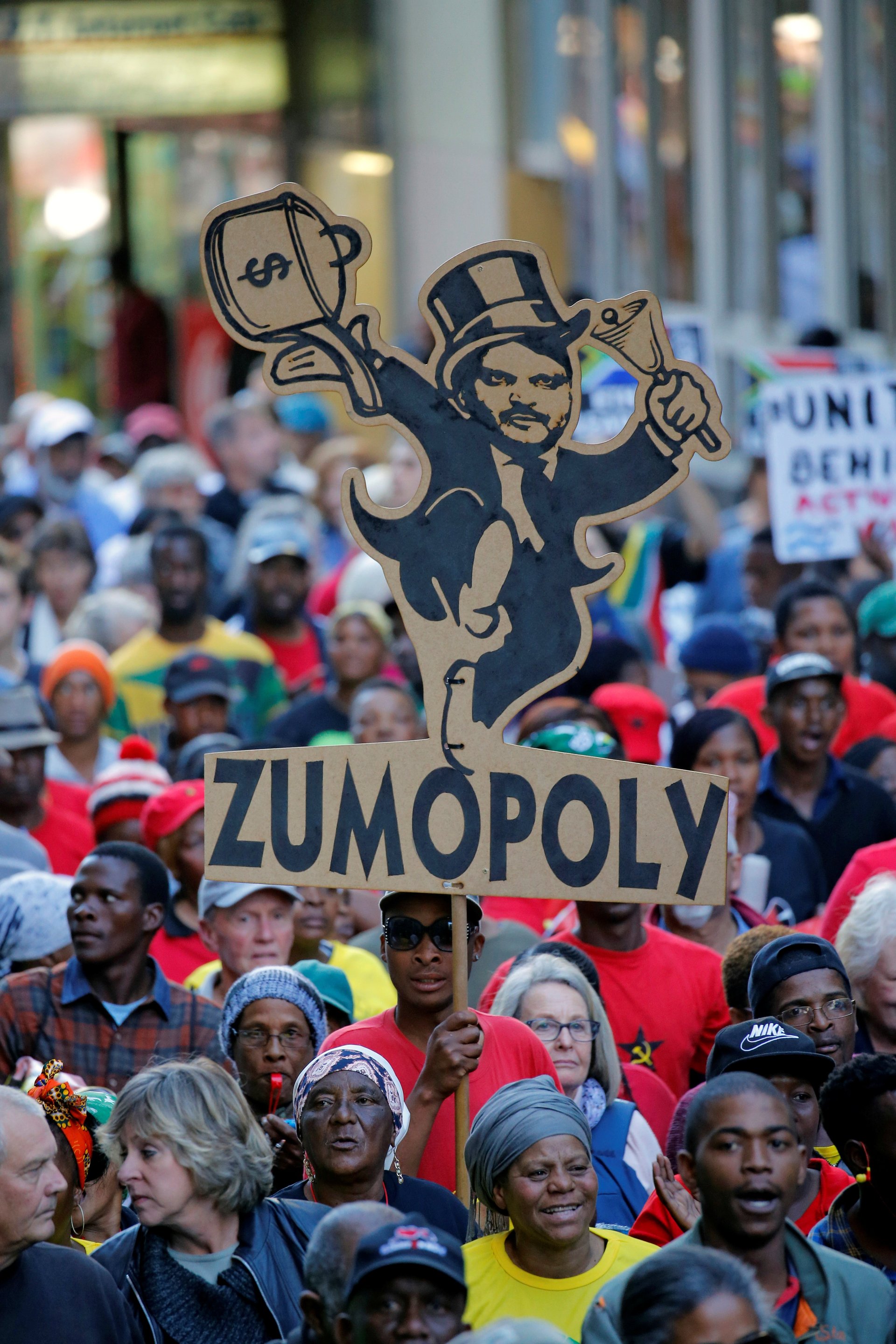The dark arts of international lobbyists and spin doctors are infecting Africa’s politics
Africans have always valued a good fable or a catchy proverb. Increasingly, however, those stories are under the control of professional tale weavers in the form of strategic communications agencies. It’s only in the last decade that the world’s public relations leaders have opened offices on the continent, and they are still trying to figure out how to handle this new market.


Africans have always valued a good fable or a catchy proverb. Increasingly, however, those stories are under the control of professional tale weavers in the form of strategic communications agencies. It’s only in the last decade that the world’s public relations leaders have opened offices on the continent, and they are still trying to figure out how to handle this new market.
But the big money for many of the major firms is by moving up the “value chain” and offering high-end strategic communications and lobbying services for governments in Africa. Their primary use is to help smooth their dealings with Western governments, which are important for everything from getting aid to enabling trade and encouraging major direct investments. These firms usually bill millions of dollars to countries whose citizens are among the poorest in the world.
Traditionally, these firms have focused on making deals in London, New York, Paris, and Washington DC, but what’s become more apparent in recent years is the presence of these sophisticated communications operatives on the ground in African politics. Their services are mostly benign but effective. However, a few have stepped over the line of accepted ethical behavior.
Exploiting divisions
London PR firm Bell Pottinger is a good example of a firm that crossed that line in South Africa. Contracted by Oakbay Capital, a company owned by the controversial Gupta brothers, associates of president Zuma, Bell Pottinger furtively sparked anger in society via local media and social media around the caustic buzzwords “white monopoly capital”.

The intent was to stoke anger over “economic apartheid”—the lingering and very real inequality between black and white South Africans. It worked, until it didn’t. When the cynical campaign was exposed, Bell Pottinger sacked the account executives in charge of it, but that wasn’t enough to stop its spectacular collapse this month as clients around the world deserted it.
Bell Pottinger, however, is far from the only communications strategist to have employed the dark arts of spin and misinformation on the continent, or elsewhere for that matter. Major public relations agencies have historically not shied away from controversial contracts, especially given the lucrative retainers they offer.
It would be unfair, however, to paint PR companies as the villains of the information age. In both the US and the UK, where the industry leaders are headquartered, the PR community has a clear set of ethical guidelines against which to measure the actions of agencies, as the Public Relations and Communications Association did when it expelled Bell Pottinger.
The culture of corporate responsibility has also changed the environment within many agencies. Junior account managers have more of a say and staff are allowed to voice their concerns over controversial clients, becoming something of a conscience.
“It is a grey area but I think good public relations people do know where the line is,” said Arun Sudhaman, CEO and editor-in-chief at the Holmes Report, an industry publication. “I think they are aware that public relations is not and should not be mere advocacy because then the risk is that they just turn into mouthpieces for their clients.”
Accountable clients
Ethics isn’t only the responsibility of the agency, though. Clients needs to be held accountable, especially governments who are meant to be acting in the interests of their citizens. A good test for agencies is to test whether their prospective clients are willing to accept criticism, says Sudhaman. If all they want to do is spin, misdirect or cover-up the conversation, then that is a red flag, he says.
In the era of fake news, however, the new ethical minefield has less to do with spotting red flags across the negotiating table than with flagging dangerous posts and tweets. In Kenya, the role of the US data firm Cambridge Analytica has come into sharp focus since the election season got underway in 2017. Hillary Clinton described the Kenya elections as a “project” of the American firm.
Cambridge Analytica, which is owned by billionaire Robert Mercer, who backed Donald Trump’s 2016 campaign, mines both personal and online data in order to change audience behavior. Its use of psychometric profiles to predict users’ behaviors, political leanings or voting patterns has especially worried observers. Its tactics are credited with helping bring about both the Trump presidency and the Brexit vote.
A former employee of the company who spoke to the Guardian said it used these “psychological operations” to win elections “in the kind of developing countries that don’t have many rules.” Comparing its services to those undertaken by intelligence agencies, the employee continued: “It was like working for MI6. You were working with the president of Kenya or Ghana or wherever. It’s not like election campaigns in the west. You got to do all sorts of crazy shit.”
In May, president Uhuru Kenyatta reportedly hired Cambridge Analytica to hedge his chances of being reelected. Engaging Cambridge Analytica was markedly “problematic,” observers say, in an electioneering period that was marred by the spread of fake news, violence, the killing of an election official, and widespread public mistrust.
This was also not the first time Cambridge Analytica had worked in Kenya: the company acknowledges that it worked on behalf of a “leading Kenyan political party” in 2013 in order to conduct the largest political research project in East Africa. That same year, Kenyatta also hired British firm BTP Advisers in order to create a “compelling political narrative” and refurbish his image as a suspect standing trial at the International Criminal Court. BTP has also worked in Rwanda, South Sudan, Nigeria and Azerbaijan.
To be clear, the work strategic communications and data firms do, such as opposition research and voter analysis, is not in itself illegal or unethical. It crosses the line though, when local political groups weaponize the information.
As Bell Pottinger did in South Africa, Cambridge Analytica’s methods were used to cynically exploit existing social divisions. In a country shaped by tribal politics, someone’s name is often all you need to discern their ethnicity—and hence, their voting pattern. Using profiling to micro-target and manipulate voters in Kenya is “particularly sensitive,” said Frederike Kaltheuner from the digital rights group Privacy International.
The digital-era presents a further problem in that information often bypasses journalists, going straight for the audience via Facebook and other social media. As the world’s largest social network grapples with its role in the media ecosystem, it’s gatekeeping efforts have not been able to keep up with the speed of information, including from sources beyond public relations with more nefarious intentions.
There is an age-old symbiotic yet ambivalent relationship between journalists and public strategists, but they’re now part of an ecosystem where the old rules and ethics no longer apply. Perhaps, it’s time to negotiate friendlier terms.
“When you’re bypassing the traditional journalist then it does raise the responsibility of the public relations person to ensure that whatever you’re saying stands up to scrutiny, because if a journalist is not providing that scrutiny, then who is?” asks Sudhaman.
A 2015 investigation by the US-based Center for Public Integrity showed “influencers” spent more money on advertising and public relations than they did on lobbying at the White House. It’s no wonder that African politicians who want to clean up their images look to European and American strategists.
Chibok girl spin
When former Nigerian president Goodluck Jonathan faced criticism for his handling of the Chibok girls kidnapping in April 2014, he turned to the professionals. The kidnapping of more than 200 schoolgirls attracted international attention, showing up the government’s security failures.
Jonathan’s government hired Levick, a DC-based firm run by founder Richard Levick, to take on a $1.2 million gig that at the time included assisting the government to combat terrorism by Boko Haram. The timing was also crucial: Levick was hired less than a year before Nigeria’s general elections with public opinion beginning to turn against Jonathan. Media-savvy Nigerians kicked off the #SomeoneTellLevick social media campaign to bash the PR firm, accusing it of trying to discredit the hugely successful #BringBackOurGirls campaign.
This is not the first time a Nigerian leader has enlisted the service of spin doctors. During the Biafran War from 1966 to 1970, the Nigerian government contracted US PR firm Burson-Marsteller to counter reports of genocide from the war.
“Nigeria—we were representing a legitimate government involved in a civil war. The Biafrans did a great PR job propagating myths that are still believed,” said Harold Burson, the man described as the “godfather of modern PR.”
At times agencies shy away when even a lucrative major government client becomes problematic. New York based agency Weber Shandwick resigned from the Egypt government account in July after attracting the kind of scrutiny that distracted from more favorable work. In particular, the contract for the country’s intelligence agency had raised eyebrows with longtime observers, according to The Atlantic.
Weber Shandwick, which is owned by global media conglomerate IPG, says the decision to give up the account was driven by the divestment of its sister firm Cassidy & Associates in June. “Concurrent with that divestiture, Weber Shandwick reviewed our representation of foreign government clients in their efforts to influence US policy and decided to discontinue such work. As a result, we are no longer working with the Arab Republic of Egypt,” spokeswoman Michelle Giuda told Quartz in an email.
Cassidy & Associates, now an independent firm, is still contracted to the Egyptian government. “Egypt is a long-standing ally of the United States and plays a key role in the fight against terrorism,” said spokesman Tom Alexander. “Cassidy & Associates continues to represent the government of Egypt and highlight this important relationship with policy makers on Capitol Hill and in the Administration.”